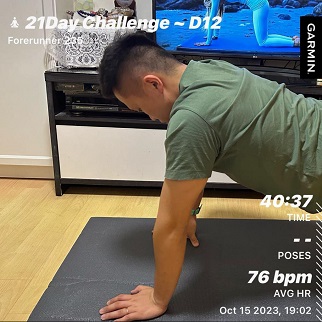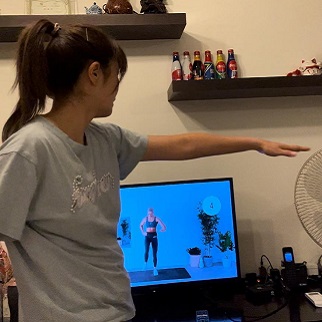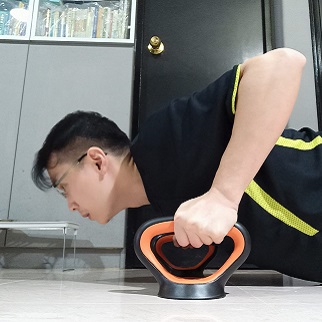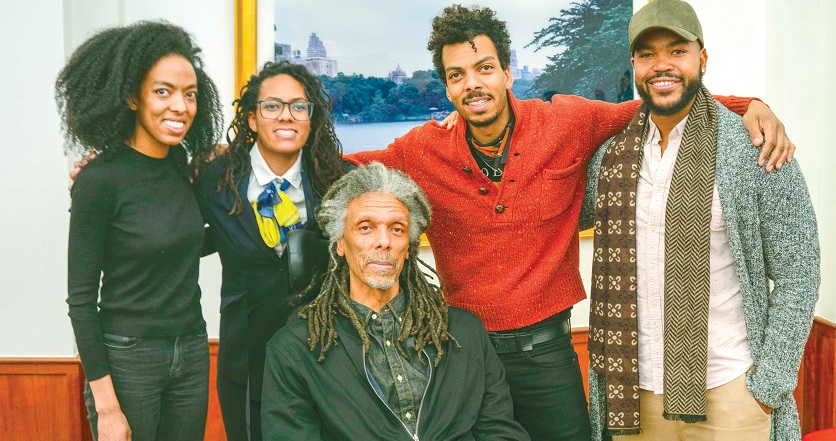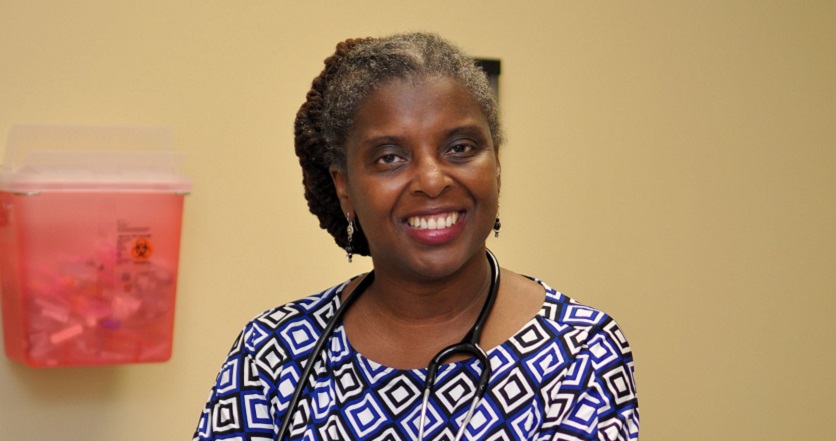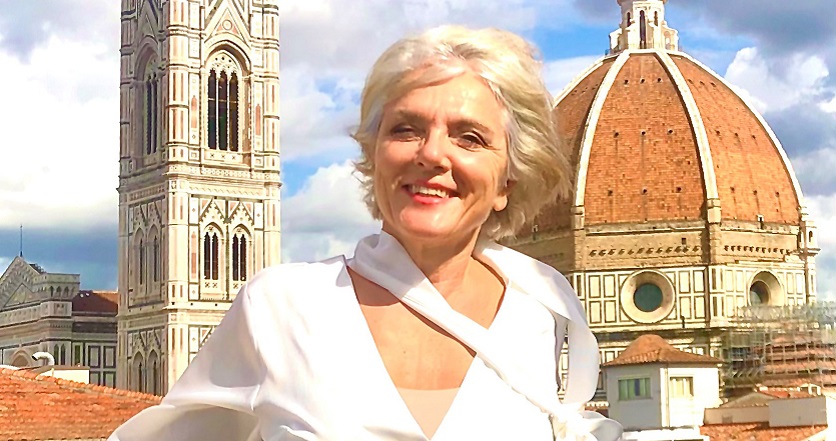A 21-Day Challenge and Perspectives on Taking Charge of Your Health
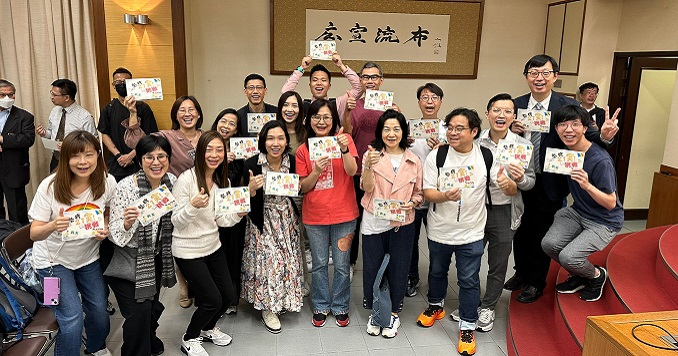
There is a well-known maxim that it takes 21 days to form a lasting habit. Embracing this idea, some 18 SGI-Hong Kong members, 12 of whom had specific health concerns they wanted to transform, took on a 21-Day Challenge to establish healthy habits. They hoped that sharing the results of their challenge at a meeting of SGI-Hong Kong’s various professional groups, such as the medical, legal, nursing and education groups, would encourage others to take action to improve their health.
Below, three members of the Medical Group—Dr. So Sum Joyce Tse, Dr. Yin Tsan Brian Lee and Dr. San Kwong Matthew Lam—summarize the results of the 21-Day Challenge and share their perspectives on the broader issue of taking control of one’s health.
The 21-Day Challenge: Establishing Healthy Habits
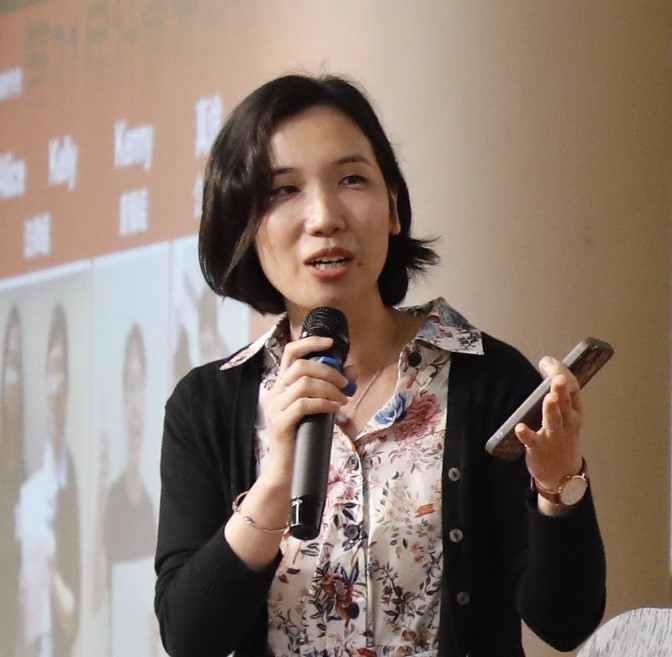
Dr. Tse, occupational therapist and vice leader of SGI-Hong Kong’s Medical Department, on the launch, process and results of the 21-Day Challenge.
Choose Your Healthy Habit
At the launch event of the 21-Day Challenge, we committed to various forms of exercise, such as climbing the stairs, jogging and doing planks, etc. Despite busy schedules, everyone was determined to prioritize their health.
Share Your Goals
We were encouraged to write a pledge and share daily photos or videos of engaging in our chosen activity in our group chat. While making a pledge is relatively easy, maintaining consistency is often more challenging. To support each other, we arranged weekly meetings where we chanted Nam-myoho-renge-kyo together and shared our progress, drawing strength from our Buddhist practice.
Find an Accountability Partner
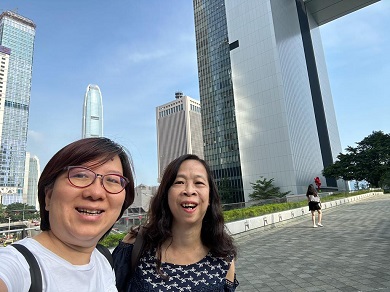
Through sharing, we realized that camaraderie is crucial. For example, two participants set a goal to walk together early every morning. Knowing that they had an accountability partner helped them stay motivated and not give up. Some participants also shared their goals with their families to receive additional support.
The Results
The results were a pleasant surprise—we all succeeded. While some participants stuck to their goals, others had to pause for a day or two, due to work, but recommitted and resumed their challenge. It has been wonderful to hear some of the participants share their joy about their 21-Day Challenge. It has created a ripple effect of positivity, and we hope to keep the momentum going.
Maintaining Healthy Habits
In my daily work, I often encourage patients to develop healthy habits and prioritize their health, for example:
- If a patient is suffering from pain, I might ask, “What would you like to do if the pain stops?” I believe that eliciting a vision of a better future is a more effective way to find the motivation to change than focusing on the negative consequences.
- Setting a realistic goal. For those who have not established an exercise habit, they can start by doing 15 minutes of light exercise every day.
- Don’t ignore your health until warning signals appear or avoid seeking medical attention for fear of illness.
The Connection between Mental and Physical Health

Dr. Lee, Chinese medicine practitioner specializing in orthopedics and vice leader of SGI-Hong Kong’s Medical Department, drawing on Buddhist philosophy and Chinese medicine, talks about the connection between mental and physical health.
Physical Health
The classic of Chinese medicine The Yellow Emperor’s Classic of Internal Medicine says that treatment only accounts for 30% of the cure, while the remaining 70% comes from nourishing the body, which, in modern terms, is a healthy lifestyle.
President Daisaku Ikeda proposed four mottoes for living a healthy life that can be summarized as follows:
- Do an invigorating gongyo [recitation of portions of the Lotus Sutra]
This rejuvenates your body and mind and raises your life state - Lead a balanced and productive lifestyle
This entails getting sufficient sleep and managing time wisely - Contribute to the welfare of others
This becomes a source of inner revitalization and energy for living vibrantly - Eat wisely
This requires applying wisdom and good sense
Mental Health
It is also important to care for our mental health. The relationship between emotions and health has long been researched in the field of Chinese medicine. For example, the terms “Liver Qi Depression/Stagnation” and “Liver Yang Rising” are equivalent to what people today refer to as depression and having a temper. These conditions can substantially impact the heart, gastrointestinal system, pulmonary circulation and muscle tone. From the perspective of Buddhism, this is similar to the relationship between one’s inner state of life and one’s health. Our health is impacted when we remain too long in the life states referred to in the Nichiren Buddhist tradition as hell, hunger, and animality, all conditions of suffering.
Attitude When Facing Illness
After years of practicing Nichiren Buddhism, I have come to understand that a person‘s attitude to their illness significantly influences the effectiveness of their treatment. Some people feel like they are receiving a death sentence when diagnosed with a critical illness and immediately become depressed and lose all their energy. Others are determined to fine-tune their daily habits while drawing strength from their Buddhist practice. They boldly face their illness and see it as an opportunity to become stronger or transform their lifestyle and receive the prescribed treatments positively. The results are remarkably different.
I always encourage my fellow Soka Gakkai members to try to overcome serious illnesses as well as other difficulties in life through elevating their inner state of life.
Support and Encouragement
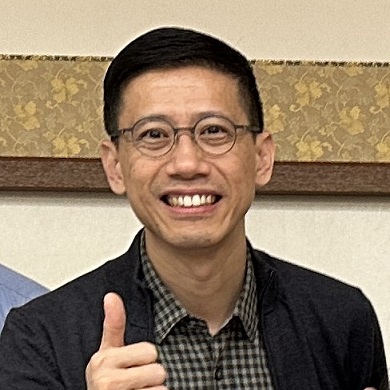
Dr. Lam, dentist and leader of SGI-Hong Kong’s Medical Department, talks about the importance of camaraderie and support in health and life.
Taking Responsibility
While everyone intellectually understands the importance of health, we sometimes unconsciously prioritize other activities like eating, drinking and having fun. I once met a patient who had been told to establish a good habit in terms of brushing his teeth, and he responded, “I come here once every six months, why don’t you just clean my teeth for me?” In fact, plaque is formed in a few days and tartar is formed in 1-2 months, so it is not wise to leave the responsibility of one’s health to the doctor.
Nichiren Buddhism is a philosophy of transformation. We do not wait for happiness in our next life; we actively strive to make changes in the present. This requires a strong determination to undergo our human revolution—a process of bringing forth our full potential.
Community of Support
Even though we know that we have the power to shape our destiny, there are inevitably times when we lose heart and become discouraged. The Soka Gakkai provides a community where individuals encourage and support one another. Our members gain the courage and strength to face their own problems through hearing the experiences of others who are facing and overcoming challenges.
Nichiren writes, “When a tree has been transplanted, though fierce winds may blow, it will not topple if it has a firm stake to hold it up.”
With supportive people by our side, I believe we can navigate any challenge without faltering, be it a short-term 21-Day Challenge or the long-term journey of a “health revolution.”
Adapted from the December 2023 issue of New Century Monthly, SGI-Hong Kong.





